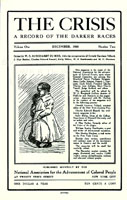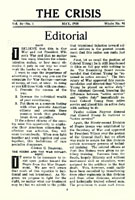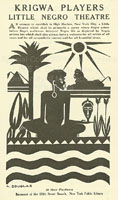

 Du Bois in the New York office of The Crisis, ca.1920-1921.
Du Bois in the New York office of The Crisis, ca.1920-1921.
 Early issues of The Crisis.
Early issues of The Crisis.

 Through The Crisis, Du Bois encouraged the development of Afro-American art, literature, and drama. The Krigwa Playhouse was established in Harlem as a result of Du Bois' efforts.
Through The Crisis, Du Bois encouraged the development of Afro-American art, literature, and drama. The Krigwa Playhouse was established in Harlem as a result of Du Bois' efforts.
 |  |
[ An Activist Life ][ Page 1 ][ Page 2 ][ Page 3 ][ Page 4 ][ Page 5 ][ Page 6 ][ Page 7 ][ Page 8 ][ Page 9 ]
[ Page 10 ][ Page 11 ][ Page 12 ][ Page 13 ][ Page 14 ]
[ Du Bois Central ][ SCUA home ]